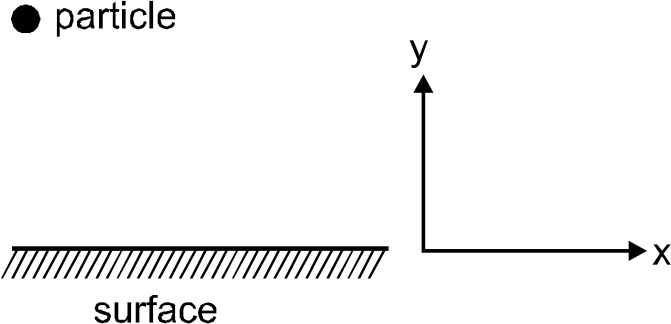A body starts with a velocity (2ˆi+3ˆj+11ˆk) m/s and moves with an acceleration (5ˆi+5ˆj−5ˆk)m/s2 . What is its velocity after 0.2 sec ?
7ˆi+8ˆj+6k
2ˆi−3ˆj+11k
3ˆi−4ˆj−10k
3ˆi+4ˆj+10k
The correct Answer is:D
Step by step video solution for A body starts with a velocity (2hati + 3hatj + 11hatk) m/s and moves with an acceleration (5hati + 5hatj - 5hatk) m//s^(2) . What is its velocity after 0.2 sec ? by Physics experts to help you in doubts & scoring excellent marks in Class 11 exams.
Updated on:21/07/2023Similar Questions
A body starts with a velocity 2ˆi+3ˆj+11ˆkm/s and moves with an acceleration 10ˆi+10ˆj+10ˆkm/s2. What is its velocity after 0.2 seconds ?
View SolutionThe velocity of an object at t =0 is →v0=−4ˆj m/s . It moves in plane with constant acceleration →a=(3ˆi+8ˆj)m/s2. What is its velocity after 1 s?
View SolutionA particle P is at the origin starts with velocity u=(2ˆi−4ˆj)m/s with constant acceleration (3ˆi+5ˆj)m/s2. After travelling for 2s its distance from the origin is
View SolutionA particle starts from the origin at t = 0 s with a velocity of 10.0ˆj m/s and moves in plane with a constant acceleration of (8ˆi+2ˆj)ms−2. The y-coordinate of the particle in 2 sec is
View SolutionA body of mass 3 kg moving with a velocity (2ˆi+3ˆj+3ˆk) m/s collides with another body of mass 4 kg moving with a velocity (3ˆi+2ˆj−3ˆk) m/s. The two bodies stick together after collision. The velocity of the composite body is
View SolutionThe work done by the forces →F=2ˆi−ˆj−ˆk in moving an object along the vectors 3ˆi+2ˆj−5ˆk is:
View SolutionThe ratio in which ˆi+2ˆj+3ˆk divides the join of −2ˆi+3ˆj+5ˆkand7ˆi−ˆk, is
View SolutionA particle of mass 2kg is moving in free space with velocity →v0=(2ˆi−3ˆj+ˆk)m/s is acted upon by force →F=(2ˆi+ˆj−2ˆk)N. Find velocity vector of the particle 3s after the force starts acting.
View SolutionIf angular velocity of a point object is →ω=(ˆi+ˆ2j−ˆk) rad/s and its position vector →r=(ˆi+ˆj−5ˆk)m then linear velocity of the object will be
View SolutionA particle moving with velocity (2ˆi−3ˆj) m/s collides with a surface at rest in xz–plane as shown in figure and moves with velocity (2ˆi+2ˆj) m/s after collision. Then coefficient of restitution is :

View Solution
